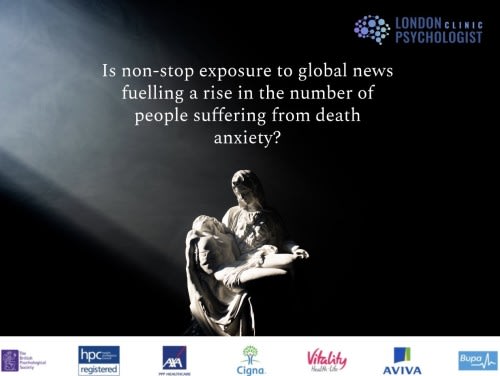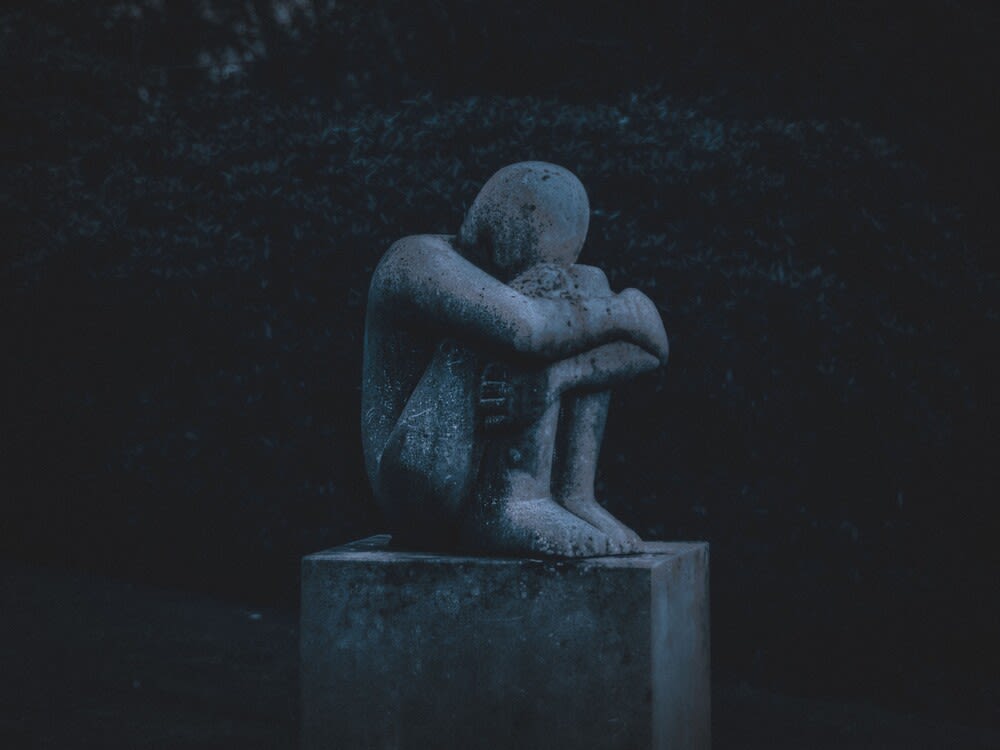Scared of Dying or Scared of living?

posted 3rd July 2023

Scared of Dying or Scared of Living? Exploring the Complexities of Death Anxiety
Death anxiety, also known as thanatophobia, is a universal and deeply ingrained aspect of the human experience. It is characterized by fear, distress, and apprehension surrounding the concept of mortality and the unknown that lies beyond. In modern times, there is a growing discourse around whether individuals are increasingly experiencing death anxiety compared to the past. This article delves into the complexities of death anxiety, examining potential factors contributing to its prevalence and exploring the interplay between fears of dying and fears of living.
Cultural and societal factors play a significant role in shaping our attitudes and perceptions toward death. Throughout history, different cultures and belief systems have offered varying explanations, rituals, and philosophies surrounding death. In recent times, with the advent of globalized media and increased access to information, individuals are more exposed to discussions and news about mortality, creating an atmosphere that may contribute to heightened death anxiety. The constant stream of alarming news, natural disasters, and global crises can evoke feelings of vulnerability and uncertainty, magnifying existential concerns.
The rapid advancements in technology and medical interventions have led to a significant reduction in mortality rates, particularly in developed countries. As a result, death has become increasingly "invisible" and removed from our everyday lives. People are less likely to witness death firsthand, which can lead to a sense of detachment and unfamiliarity with the process. Paradoxically, this distancing from death can heighten anxiety as individuals become less familiar with the natural course of life and its inevitable end.
Death anxiety is closely intertwined with existential questions about the meaning and purpose of life. The fear of death often goes hand in hand with the fear of not fully living or regretting missed opportunities. In a fast-paced and achievement-oriented society, individuals may experience pressure to accomplish goals, leaving little room for introspection and self-reflection. This constant drive can lead to anxiety about the brevity of life and concerns about leaving important things unfinished or unfulfilled.
The COVID-19 Pandemic and Heightened Awareness:
The ongoing COVID-19 pandemic has brought death and mortality to the forefront of public consciousness. The widespread impact of the virus, coupled with the constant media coverage, has made mortality more salient than ever before. The fear of contracting a potentially fatal illness and the uncertainty surrounding the pandemic can exacerbate death anxiety in many individuals. It has prompted existential reflections on vulnerability, personal mortality, and the fragility of life.
While death anxiety can be distressing, it can also serve as a catalyst for personal growth and existential exploration. Many individuals who confront death anxiety embark on a journey to find meaning, purpose, and acceptance in their lives. They may engage in spiritual practices, therapy, or philosophical reflections to reconcile their fears and develop a deeper appreciation for the present moment.
The question of whether more people are experiencing death anxiety in modern times is complex and multifaceted. Cultural, societal, and technological factors undoubtedly shape our perceptions and experiences of mortality. The COVID-19 pandemic has further amplified existential concerns. However, it is essential to recognize that death anxiety has always been a part of the human condition. By acknowledging and exploring our fears, we can gain a deeper understanding of ourselves and the intrinsic value of living a purposeful and fulfilling life in the face of mortality.
For more information about psychological therapy to treat death anxiety contact us at: info@londonpsychologistclinic.co.uk



